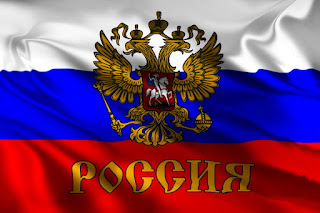 Defender of the Fatherland
Day is a holiday observed in Russia, Belarus, Kyrgyzstan, Tajikistan, and several other former republics of the Soviet Union. It is celebrated on February
23, except in Kazakhstan, where the date is May 7.
Defender of the Fatherland
Day is a holiday observed in Russia, Belarus, Kyrgyzstan, Tajikistan, and several other former republics of the Soviet Union. It is celebrated on February
23, except in Kazakhstan, where the date is May 7.
On Feburary 23rd, Russia
celebrates its men. Although this holiday has a military history, first
celebrated around WWI, it has evolved to become Russia’s somewhat odd
counterpart to Women’s Day on March 8th.
On February 23rd, Russian women (and sometimes men) celebrate the important men
in their lives – fathers, brothers, teachers and even co-workers. This holiday
is also the Russian equivalent of Father’s Day in other Western countries
(which has not traditionally been celebrated in Russia).
Defender of the Fatherland Day (or Men’s Day) is a truly Russian creation, first observed to mark the date of the creation of the Red (Soviet) Army in 1918. The holiday was originally known as Red Army Day, and then Soviet Army and Navy Day; in 2002 it was given its current name, Defender of the Fatherland Day by President Putin and declared an official public holiday.
 Although some more feminist societies may find
issue with the concept of celebrating a “Men’s Day”, in Russia it is not seen
as strange, offensive or inappropriate. While Russian society can be quite
(frustratingly) patriarchal, nonetheless it
is widely accepted by both sexes that both men and women have put a lot of work
into the prosperity and success of Russia. Men, in particular, helped to do so
by fighting in the wars, and their military achievements are the reason for
this day. However, even if the men in one’s life have not been involved in war,
it is still seen as polite and important to at least recognize them on February
23rd. In part this is because Women’s Day (March 8th) is so widely
celebrated – to forget to celebrate Women’s Day is considered quite rude in
Russia – and Men’s Day is a way to recognize that men and women are both
important to one another.
Although some more feminist societies may find
issue with the concept of celebrating a “Men’s Day”, in Russia it is not seen
as strange, offensive or inappropriate. While Russian society can be quite
(frustratingly) patriarchal, nonetheless it
is widely accepted by both sexes that both men and women have put a lot of work
into the prosperity and success of Russia. Men, in particular, helped to do so
by fighting in the wars, and their military achievements are the reason for
this day. However, even if the men in one’s life have not been involved in war,
it is still seen as polite and important to at least recognize them on February
23rd. In part this is because Women’s Day (March 8th) is so widely
celebrated – to forget to celebrate Women’s Day is considered quite rude in
Russia – and Men’s Day is a way to recognize that men and women are both
important to one another.Men’s Day celebrations are usually smaller and more perfunctory than Women’s Day ones – except the public celebrations and parades, which conversely are much bigger for Men’s Day.
